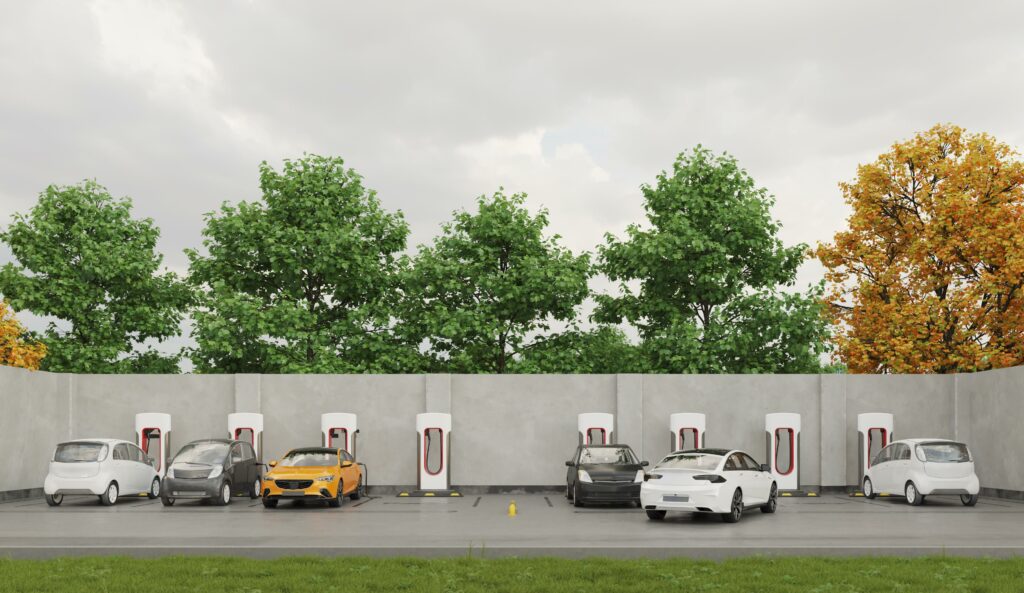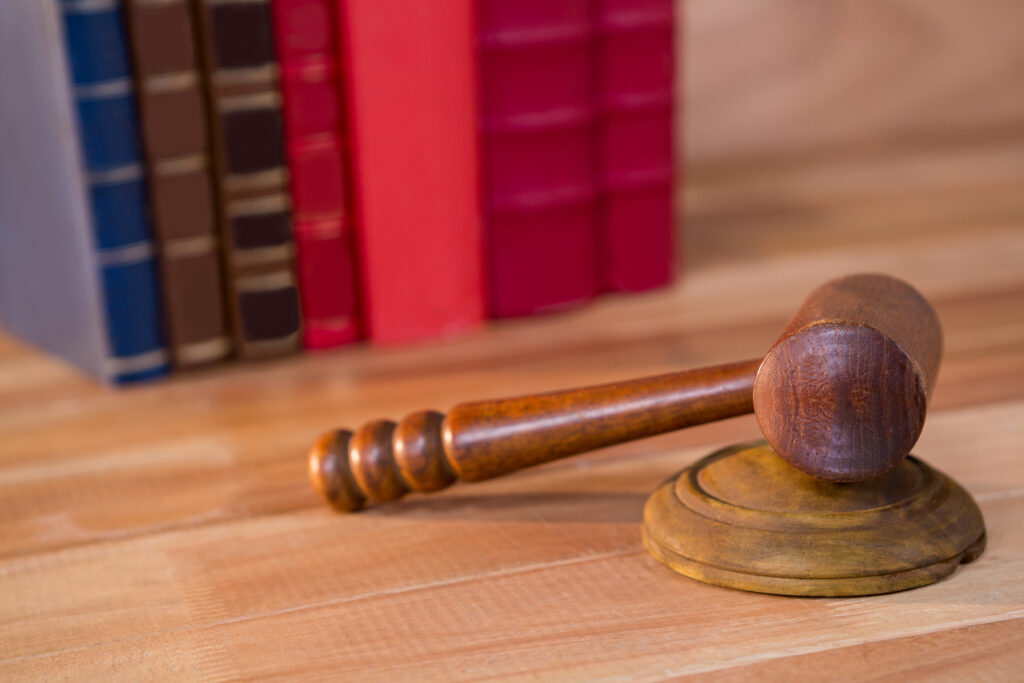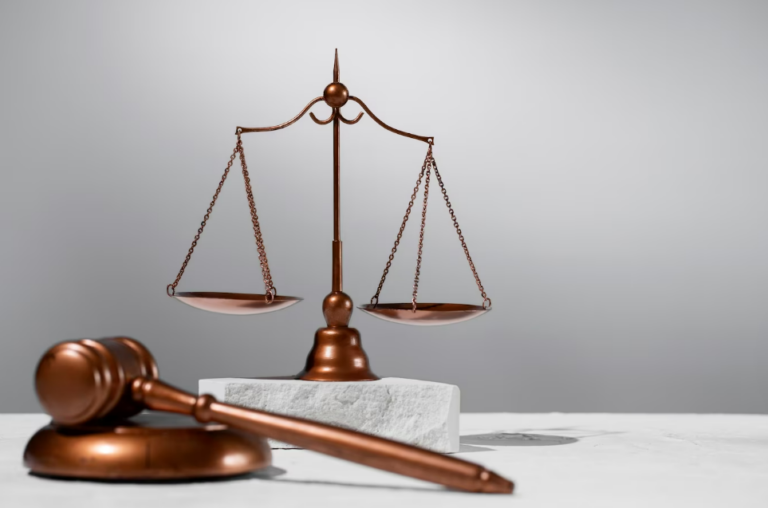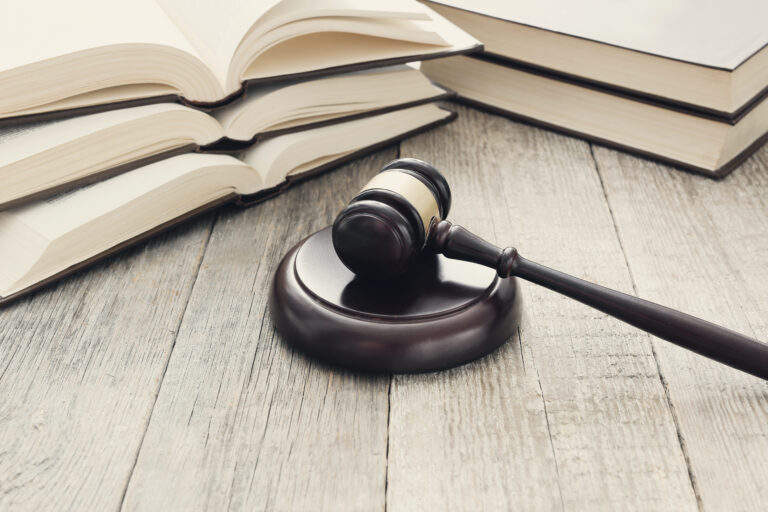Legal Considerations For Tesla Buyers: Lemon Law And Beyond
Understanding Lemon Laws
Lemon laws are consumer protection statutes designed to give buyers recourse when they purchase a car with persistent and unresolved problems. While laws vary significantly across states, understanding the basic principles and how they apply to Tesla vehicles can be empowering for owners.
Overview of Lemon Laws: A Patchwork of Protection
- State-by-State Variations: Each state has its own lemon law with unique provisions regarding qualifying criteria, timelines, and available remedies. Differences can exist in:
- Number of repair attempts: Some states require four attempts, while others may necessitate only two or three.
- Severity of defects: Some focus on major safety or performance issues, while others encompass wider categories like recurring minor defects.
- Reasonable use expectations: This concept defines whether a car’s problems stem from normal wear and tear or genuine defects.
- Basic Principles: Despite variations, several common principles underpin most lemon laws:
- Presumption of Nonconformity: After a certain number of repair attempts, the burden shifts to the manufacturer to prove the car isn’t a lemon.
- Reasonable Remedy Options: Manufacturers must offer fair solutions like repurchase, replacement, or refunds.
- Attorney Fees Recovery: Some states allow successful claimants to recover legal fees from the manufacturer.
Defining a “Lemon” Car: Beyond Just a Sour Taste
- Number of Repair Attempts: A key factor in determining if a car qualifies as a lemon is the number of attempts needed to fix the same or similar defects within a given timeframe. This timeframe might be one year or 18,000 miles in some states.
- Examples: Repeated repairs for engine stalling, transmission problems, electrical system malfunctions, or significant paint defects could potentially qualify a Tesla under state lemon laws.
- Severity of Defects: Not all defects automatically qualify a car as a lemon. The law focuses on “substantial impairment,” meaning defects significantly impact the car’s value, safety, or drivability.
- Examples: Safety hazards like defective brakes or airbags, recurring major performance issues impacting drivability, or defects significantly reducing the car’s value would likely qualify under most lemon laws. Some states differentiate between major and minor defects, with only the former qualifying.
- Reasonable Use Expectations: Lemon laws are not intended for normal wear and tear or damage due to improper usage. Courts consider whether the car has been subjected to “reasonable use” based on factors like:
Maintenance history: Regular and documented maintenance strengthens a lemon law claim.
Accident history: Accidents not caused by manufacturer defects can weaken a claim.
Modifications: Unauthorized modifications can void the warranty and weaken a claim.
Qualifying Under Lemon Laws: Documenting Your Way to a Resolution
Documentation is Key: Thoroughly document all repair attempts and communications with Tesla. Keep copies of:
- Repair invoices and service records
- Written communication with Tesla representatives
- Photographs or videos of defects
- Maintenance records
Mind the Timelines: Each state has deadlines for notifying the manufacturer and initiating legal action. Act promptly and don’t miss crucial deadlines.
Communicate Effectively: Maintain open and professional communication with Tesla throughout the process. Clearly outline the problems and request documented responses. Consider exploring alternative dispute resolution options before resorting to litigation.
Remedies Available Under Lemon Laws: Sweetening the Deal for Consumers
- Repurchase: Tesla must repurchase the lemon car at the purchase price minus reasonable depreciation. They may also be responsible for related expenses like loan payments and registration fees.
- Replacement: Tesla can replace the lemon car with a comparable model that is free of defects.
- Refund: In some cases, a full refund might be available, including the purchase price, finance charges, and extended warranty costs.
- Litigation Options: If negotiations fail, you may need to file a lawsuit to enforce your lemon law rights. Legal counsel is recommended in such cases.
Limitations of Lemon Laws: Not a Foolproof Shield
While lemon laws offer significant protection, there are limitations to consider:
- Exclusions: Some types of defects or car models might be excluded from lemon law coverage. Carefully review your state’s specific law.
- Burden of Proof: Ultimately, the onus of proving your car is a lemon lies with you. Documentation and expert testimony can be crucial.

Warranties: Beyond Lemon Laws
Understanding Tesla’s Warranty Provisions: A Multi-Layered Protection System
While lemon laws offer crucial protection, Tesla provides warranties to cover defects and malfunctioning parts beyond their scope. Let’s delve into the different warranties offered by Tesla:
- Limited Warranty:
Covers workmanship and material defects in the vehicle itself for four years or 50,000 miles (varies depending on model and location).
Includes components like the body, chassis, paint, interior trim, and infotainment system.
Excludes wear and tear items like tires, brake pads, and wiper blades.
- Battery and Drive Unit Warranty:
Covers the core elements powering your Tesla, the battery and drive unit, for eight years or 125,000 miles (again, check your specific model).
Provides peace of mind regarding critical components with significant impact on performance and value.
- Extended Warranties:
Tesla offers its own extended warranty plans beyond the initial coverage periods.
These plans extend coverage for the battery, drive unit, or both, offering peace of mind for longer ownership periods.
Carefully compare costs, deductibles, and coverage specifics before purchasing an extended warranty.
Coverage Specifics: Knowing What’s In and Out
Knowing what your warranty covers is crucial for maximizing its benefits. Here’s a breakdown:
- What’s Covered:
Defects in materials and workmanship of covered components.
Repairs necessitated by manufacturer-related issues.
Software updates affecting system functionality.
Replacement of faulty parts with like-new or remanufactured components.
- What’s Not Covered:
Normal wear and tear, including battery degradation within expected capacity loss parameters.
Damage caused by accidents, negligence, or improper use.
Modifications not approved by Tesla.
Maintenance and service items as outlined in the owner’s manual.
- Grey Areas:
Certain issues might lie in grey areas, requiring careful reading of warranty terms and potential communication with Tesla.
Examples include:
Battery degradation exceeding expected levels due to unusual charging patterns.
Software updates causing unintended functionality changes.
Wear and tear exceeding normal expectations due to specific driving conditions.
Warranty Claims Process: Navigating the Repair Journey
If you encounter a covered issue, claiming your warranty requires proper procedures:
- Schedule an appointment: Contact Tesla service through their app or website to schedule a service appointment.
- Explain the issue: Clearly communicate the problem and document it with photos or videos if possible.
- Provide documentation: Bring along copies of your warranty and relevant service records.
- Follow service center instructions: Cooperate with the service center’s diagnosis and repair process.
- Appeal if necessary: If dissatisfied with the outcome, discuss appeal options with the service center or contact Tesla directly.
Third-Party Extended Warranties: Weighing the Options
While Tesla offers extended warranties, third-party options exist. Consider these factors before purchasing:
- Cost and coverage: Compare prices and coverage levels offered by different providers.
- Reputation and claims history: Research the company’s track record for handling claims and customer satisfaction.
- Exclusions and limitations: Carefully review the fine print to understand what’s not covered.
- Transferability: Check if the warranty can be transferred to a new owner if you sell your Tesla.
Voiding Warranties: Protecting Your Coverage
Certain actions can void your warranty, so be mindful of:
- Modifications: Installing unapproved aftermarket parts or modifying the vehicle’s software.
- Improper use: Racing, off-roading beyond specified limitations, or exceeding towing capacity.
- Maintenance negligence: Failing to follow recommended maintenance schedules and service intervals.
- Remember, proactively maintaining your Tesla and avoiding activities that could compromise its warranty will ensure your investment is protected.
Further Tips:
- Read your warranty documentation carefully: This is your ultimate guide to understanding what’s covered and how to claim your warranty.
- Stay informed: Tesla occasionally updates its warranty terms, so keep an eye out for changes.
- Consult a lawyer: If you have complex warranty issues or need help navigating the claims process, seek legal advice.
- By understanding Tesla’s warranties and their intricacies, you can be a confident and informed owner, maximizing the benefits of your investment and navigating any covered issues seamlessly.

Unpacking the Legal Landscape of Tesla Ownership
Tesla, the once futuristic dream of electric mobility, has become a mainstream reality, electrifying roads and capturing hearts (and headlines) across the globe. With sleek designs, unparalleled performance, and a commitment to sustainability, Tesla vehicles represent the cutting edge of automotive technology. Yet, beneath the sleek curves and futuristic features lies a complex legal landscape, one that savvy Tesla buyers must navigate to ensure a smooth and satisfying ownership experience.
Rise of the Electric Giant: Innovation with a Side of Potential Pitfalls
Tesla’s meteoric rise is undeniable. From a fledgling Silicon Valley startup to a global powerhouse, the company has redefined the electric vehicle market. Its cars aren’t just technological marvels – they’re cultural icons, symbolizing innovation, environmental consciousness, and a certain avant-garde spirit.
However, with great popularity comes great responsibility. As Tesla ownership becomes more widespread, potential pitfalls for new owners emerge. From navigating the intricacies of lemon laws and warranties to understanding complex contractual agreements and data privacy concerns, ensuring your Tesla experience is as positive as it is exhilarating requires legal awareness and preparedness.
Arming Yourself with Knowledge: Why Legal Awareness Matters
Owning a Tesla is an investment, both financial and emotional. Protecting that investment means understanding your rights and responsibilities as a consumer. Legal awareness isn’t just about avoiding trouble – it’s about empowering yourself to make informed decisions, resolve disputes confidently, and maximize your satisfaction with your Tesla.
Here are just a few examples of how legal awareness can benefit you:
- Lemon Laws: Understanding state-specific regulations can help you identify and address issues with persistent defects, potentially leading to vehicle repurchase or replacement.
- Warranties: Knowing what’s covered and what’s not under Tesla’s warranties and potential third-party options empowers you to make informed choices regarding repairs and maintenance.
- Contractual Agreements: Scrutinizing purchase agreements, financing terms, and lease details before signing on the dotted line protects you from hidden fees, unexpected obligations, and limitations on your rights.
- Data Privacy and Security: Being aware of the data Tesla collects, your options for control, and potential vulnerabilities can help you safeguard your privacy and ensure responsible data handling practices.
Unpacking the Legal Toolkit: What This Outline Covers
This guide aims to be your compass for navigating the legal landscape of Tesla ownership. We’ll delve into various aspects to equip you with the knowledge and resources you need to make informed decisions and protect your rights:
- Understanding Lemon Laws: We’ll explore state-by-state variations, key principles, and practical steps to take if you suspect your Tesla falls under lemon law provisions.
- Demystifying Warranties: We’ll clarify Tesla’s warranties, explore extended options, and offer tips for navigating the claims process.
- Contractual Considerations: We’ll dissect purchase agreements, financing terms, leasing details, and online ordering clauses to help you understand your rights and obligations.
- Data Privacy and Security: We’ll shed light on data collection practices, control options, cybersecurity vulnerabilities, and potential legal recourse in case of privacy breaches.
- Additional Legal Considerations: We’ll delve into insurance intricacies, intellectual property concerns, environmental regulations, autonomous driving technology, and the potential for class action lawsuits.
- By equipping yourself with knowledge and understanding the nuances of Tesla ownership, you can transform your journey from exhilarating ride to empowered experience.

Contractual Considerations: Navigating the Fine Print of Tesla Ownership
Beyond lemon laws, understanding the intricacies of contractual agreements with Tesla is crucial for a smooth and informed ownership experience. Here’s a breakdown of key areas to consider:
Purchase Agreements: Demystifying the Fine Print
- Key Terms: Carefully review terms like the final purchase price, delivery timeline, payment methods, and inspection rights.
- Delivery Conditions: Understand expectations for delivery, potential transportation fees, and title transfer procedures.
- Dispute Resolution Clauses: Be aware of arbitration clauses that might limit your options for legal recourse in case of disputes. Consider opting out if possible.
Financing Agreements: Exploring Loan Options
- Interest Rates: Compare rates offered by Tesla against those available from other lenders to secure the best deal.
- Prepayment Penalties: Understand potential charges for early loan repayments and factor them into your financial planning.
- Implications for Lemon Law Claims: Financing agreements may have clauses impacting your ability to claim remedies under lemon laws. Consult with a lawyer if needed.
Leasing Agreements: Renting with Ownership Aspirations
- Early Termination Rights: Review conditions and fees associated with early termination of the lease in case of unforeseen circumstances.
- Wear and Tear Provisions: Familiarize yourself with acceptable wear and tear standards to avoid potential charges at lease end.
- Purchase Option Details: Thoroughly understand the purchase option price, residual value calculations, and potential financing options at lease end.
Online Ordering and Agreements: Clicking Your Way to Ownership
- Electronic Signatures: Understand the legal validity of electronic signatures and ensure you comprehend the agreement before signing.
- Cancellation Rights: Check for applicable cancellation periods within which you can back out of the online purchase agreement.
- Dispute Resolution Protocols: Be aware of online dispute resolution protocols and their implications for addressing potential issues.
Negotiating for Better Terms: Taking Control of your Contract
- Know your Leverage: Research typical contract terms and identify areas where you may have some bargaining power based on factors like market demand or alternative options.
- Prepare for Discussions: Research comparable deals and practice presenting your desired modifications professionally.
- Be Realistic: Understand that certain terms, like the final purchase price of a specific Tesla model, might be less negotiable.

Data Privacy and Security: Balancing Innovation with Individual Rights in the Tesla Ecosystem
Tesla’s vehicles are technological marvels, collecting vast amounts of data about your driving habits, vehicle performance, and even the surrounding environment. While this data fuels innovation and personalized features, it also raises concerns about privacy and security. Let’s dive deeper into these complex issues:
Data Collection and Usage: Tracking Every Mile
- Vehicle Telemetry: Every turn, acceleration, and brake press is recorded, along with battery health, energy consumption, and even GPS location.
- Driving Habits: Tesla analyzes data to learn your driving patterns, suggesting optimal routes and potentially influencing insurance rates.
- Potential Concerns: Privacy advocates worry about misuse of data for profiling, targeted advertising, or even law enforcement surveillance.
Opting Out: Managing Your Digital Footprint
- Limited Options: While Tesla offers limited data sharing controls, completely opting out remains challenging.
- Dashboard Choices: You can choose which data is shared with third-party apps and adjust settings for anonymized data collection.
- Future Developments: Increased transparency and granular control over data sharing are crucial for building trust and empowering consumers.
Cybersecurity Vulnerabilities: Protecting the Connected Car
- Hacking Risks: As vehicles become more connected, they become more vulnerable to cyberattacks, potentially compromising driving safety or privacy.
- Tesla’s Measures: Tesla implements security measures like encryption, secure software updates, and bug bounty programs to mitigate vulnerabilities.
- Shared Responsibility: Both Tesla and car owners need to stay vigilant about software updates and online security best practices.
Data Breaches and Consumer Rights: What Happens When Privacy is Compromised?
- Notification Requirements: In case of a data breach, Tesla is legally obligated to inform affected consumers about the nature and scope of the incident.
- Legal Recourse: Consumers may have legal options to seek compensation for damages or loss of control over their data depending on the circumstances.
- Strengthening Protections: Stronger data breach notification laws and consumer rights protections are crucial in the age of interconnected vehicles.
Regulatory Landscape: The Future of Data in the Driver’s Seat
- Emerging Laws: Regulations like the California Consumer Privacy Act (CCPA) and the European Union’s General Data Protection Regulation (GDPR) are setting new standards for data privacy.
- Future Implications: Tesla will need to adapt its data practices to comply with evolving regulations and consumer expectations.
- The Right to be Forgotten: Consumers should have the right to request deletion of their data and control its storage and usage by companies like Tesla.
- By understanding the data landscape surrounding Tesla vehicles, you can make informed decisions about sharing your information and hold the company accountable for protecting your privacy. As technology advances and regulations evolve, staying informed and advocating for strong data privacy and security protections will be crucial for ensuring a balanced future for connected cars.

Additional Legal Considerations: Navigating the Complexities of Tesla Ownership
Beyond the immediate concerns of lemon laws and warranties, owning a Tesla involves a unique set of legal considerations. Exploring these areas can empower you to anticipate potential challenges and navigate the complex legal landscape surrounding your Tesla:
Insurance Issues: Protecting Your Electric Ride
- Coverage Differences: Standard car insurance might not fully cover Tesla’s unique features and technology. Shop around for policies specifically designed for electric vehicles.
- Modification Concerns: Unofficial modifications can void your warranty and complicate insurance claims. Consult your insurer before making any changes.
- Communicating with Insurers: Inform your insurer accurately about your Tesla model, features, and driving habits to ensure proper coverage.
Intellectual Property: Respecting Innovation
- Trademarks and Patents: Tesla vigorously protects its intellectual property. Be mindful of using logos, designs, or technology without proper authorization.
- Aftermarket Modifications: Grey areas exist regarding modifications. Avoid infringing on patents and ensure modifications don’t compromise safety or legality.
- Fair Use and Open Source: Explore legal concepts like fair use and open-source software for responsible sharing and innovation within the Tesla community.
Environmental Regulations: Charging into a Greener Future
- Emissions Standards: While electric vehicles contribute to emission reduction, evolving regulations might impact registration or incentives depending on your location.
- Charging Infrastructure: Access to charging stations can vary dramatically. Be aware of potential limitations and advocate for expanded infrastructure development.
- Legal Challenges: Policy debates might arise surrounding battery disposal, energy production for charging, and the overall environmental impact of electric vehicles.
Autonomous Driving Technology: Navigating the Uncharted Roads
- Legal Liability: Uncertainty surrounds legal liability in accidents involving autonomous driving features. Stay informed about evolving regulations and clarify responsibility with Tesla.
- Ethical Considerations: Questions arise about ethical decision-making algorithms and potential biases in self-driving technology. Engage in discussions and advocate for responsible development.
- Regulatory Hurdles: Widespread adoption of autonomous driving faces legal and regulatory hurdles regarding safety, insurance, and infrastructure. Stay updated on advancements and potential challenges.
Class Action Lawsuits: Collective Action for Consumer Protection
- Potential Involvement: If you face similar issues with your Tesla, class action lawsuits can offer collective legal recourse against the company.
- Evaluating Claims: Carefully consider the merits of any lawsuit, potential risks and benefits, and alternative means of resolving your concerns.
- Staying Informed: Monitor news and legal developments regarding class action lawsuits involving Tesla to protect your rights and interests.
- Remember, legal intricacies surrounding Tesla ownership are constantly evolving. By staying informed, seeking professional guidance when needed, and advocating for fair and responsible practices, you can navigate these complexities and enjoy the benefits of your Tesla experience with confidence and awareness.

Navigating the Legal Currents of Tesla Ownership
Owning a Tesla is not just about experiencing cutting-edge technology and environmental consciousness; it’s also about navigating a unique legal landscape. By understanding the key considerations outlined in this guide, you can be a well-informed and empowered Tesla owner, prepared to tackle potential challenges and protect your rights.
Recap: Charting Your Course
Remember that knowledge is your most valuable asset when it comes to legal matters. This guide has highlighted critical areas to pay attention to, including:
- Understanding lemon laws: Familiarize yourself with state-specific regulations and how they could apply to your situation.
- Warranties beyond lemons: Know what’s covered and what’s not under Tesla’s warranties and third-party options.
- Contractual considerations: Scrutinize purchase agreements, financing terms, and lease details before signing on the dotted line.
- Data privacy and security: Be aware of the data Tesla collects, your options for control, and potential vulnerabilities.
- Additional complexities: Be prepared for insurance considerations, intellectual property issues, environmental regulations, autonomous driving developments, and the potential for class action lawsuits.
Legal Counsel: Navigating the Rapids
While this guide empowers you with crucial knowledge, complex legal situations often require seeking professional guidance. Don’t hesitate to consult with a lawyer specializing in automotive law or consumer protection for personalized advice and representation in case of disputes or legal challenges.
Resources and Tools: Your Lifeline in Turbulent Waters
Several resources are available to support you on your Tesla legal journey:
- Government agencies: Look to agencies like the Federal Trade Commission (FTC) and your state’s consumer protection division for information and complaint filing options.
- Consumer advocacy groups: Organizations like the Center for Automotive Safety and Consumer Reports offer valuable resources and insights on legal issues related to car ownership.
- Legal information websites: Websites like Nolo or Avvo provide free legal information and tools to help you understand your rights and options.
Staying Informed: Maintaining Course Direction
The legal landscape surrounding Tesla ownership is constantly evolving due to technological advancements and regulatory changes. Stay informed by:
- Subscribing to relevant publications and newsletters: Follow news sources and organizations focused on automotive law, consumer protection, and Tesla developments.
- Attending informational webinars and workshops: Participate in events hosted by legal professionals or consumer advocacy groups to learn about legal updates and trends.
- Engaging in online communities: Connect with other Tesla owners and legal experts through online forums and social media groups to share experiences and gather insights.
The Future of Tesla Ownership: Embracing the Legal Currents
As Tesla pushes the boundaries of technology and sustainability, we can expect continued legal challenges and opportunities. Be an active participant in shaping the future of Tesla ownership by:
- Advocating for fair and responsible practices: Voice your concerns about data privacy, intellectual property rights, environmental regulations, and ethical considerations surrounding autonomous driving technology.
- Supporting organizations promoting consumer protection: Contribute to groups fighting for fair regulations and legal safeguards for Tesla owners.
- Staying engaged in the conversation: Share your experiences and concerns with fellow Tesla owners, policymakers, and legal professionals to influence the future of electric vehicle ownership.
By embracing the legal currents and actively navigating the ever-evolving landscape, you can ensure a smooth, satisfying, and responsible Tesla ownership experience. Remember, knowledge, preparedness, and informed action are your keys to making the most of your cutting-edge car while protecting your rights and contributing to a brighter future for Tesla and the entire electric vehicle industry.







